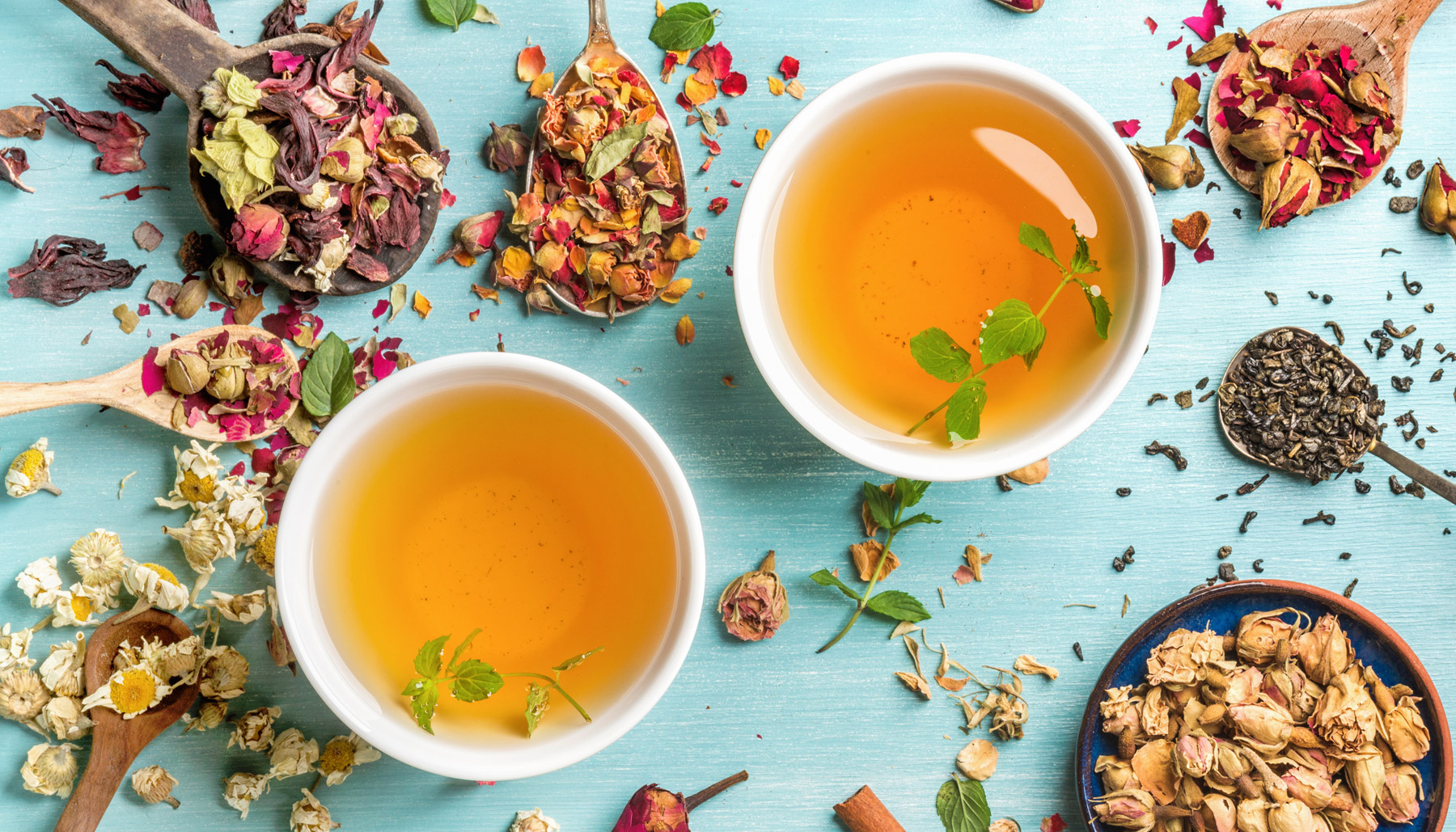We’re not even through January yet, and already 2021 has been a year. But with new years come new hopes for healthier habits, and for many of us, that includes how we handle stress.
Some of the ways we can do that are through meditation, journaling, yoga, and calming baths in place of doom scrolling, reaching for the junk food, vegging out on the couch, and grabbing a glass of wine the minute the clock hits 5pm.
I must shamefully admit that my own Dry January plans went out the window after the events of January 6th, but I’m making a concerted effort to opt for more beneficial beverages, like herbal tea.
I have a little apothecary of sorts in my kitchen that’s full of loose and bagged teas, and I love drinking both varieties. Sometimes I’m in the mood to grab a pinch of this and a pinch of that as I blend my own herbs into a yummy concoction, and sometimes I like to leave things up to the experts (and save time) by grabbing something out of my many boxes of Traditional Medicinals or Yogi teas.
(If you’ve never bought loose herbs to blend your own teas, several online retailers, such as Mountain Rose Herbs, take the guesswork out of it.)
Today, we’re breaking down some of the best soothing herbal teas, how they work, where to find them, and how to prepare them into warm cups of delicious stress relief.
Peppermint
Peppermint tea is soothing and refreshing – yet also seems like it would be invigorating. Not to worry, though, it’s not going to get you revved up. The menthol found in peppermint is actually a natural muscle relaxant, which can combat the tension that comes along with stress and anxiety.
Peppermint tea should be avoided by pregnant or nursing women.
You can make tea with either dried or fresh mint leaves. For dried leaves, add a tablespoon and steep in 8 oz. of boiling water for 3-4 minutes. For fresh, crush the leaves and simmer them in water for 2 minutes. Strain before drinking and sweeten with honey if desired.
Peppermint tea is also easy to find in just about any grocery store. Choose an organic variety if you are able to.
(Pro tip: cover your cup while your tea is steeping so the volatile – and beneficial – oils don’t escape into the air).
Chamomile
Chamomile is a favorite because it not only helps to relax and unwind you, but it can promote more restful sleep as well. (All the insomniacs rejoice!) It can also help to relax the muscles and soothe irritability, just like peppermint, but it’s much milder in flavor if that’s more your thing.
Add 3-4 tablespoons of dry chamomile to boiling water and steep for 5 minutes, or infuse chamomile flowers for three minutes. Strain before drinking and sweeten with honey if desired.
Chamomile should also be widely available at just about any store.
Passionflower
Passionflower contains a flavone called chrysin which has anti-anxiety benefits. It also helps to promote a more restful sleep. While not intense by any means, it’s still wise to avoid drinking when taking any sort of sedatives. It also should not be consumed by children under 6 months, or by pregnant or nursing women.
Make a tea out of dried passionflower by adding a tablespoon into 8 oz. of boiling water and steeping for 10 minutes. Strain before drinking and sweeten with honey if desired.
Plain passionflower tea can be found in stores but itsn’t quite as common. It’s an ingredient in several relaxing and sleep-promoting blends, however, like Traditional Medicinal’s Cup of Calm.
Lemon Balm
Lemon balm has a slight lemony flavor, but is a part of the mint family. (Mint and lemon together? What could be better?) It’s known to reduce the stress hormone cortisol, so it promotes relaxation without making you feel drowsy.
Add a tablespoon of dried lemon balm (or 2 tablespoons of fresh) to 8 oz. of boiling water and steep for 10 minutes. Strain before drinking and sweeten with honey if desired.
Traditional Medicinals produces an organic lemon balm tea, though it might be easier to order online than to find at the store. It’s also an ingredient in Yogi’s Elderberry Lemon Balm and Honey Lavender Stress Relief blends.
Green Tea
Green tea is known to have decent caffeine levels, so this one might not make too much sense at first. But the polyphenol in green tea actually helps to ward off stress and anxiety. It’s also an adaptogen, which helps the tea walk the line of keeping you alert and calm, with no risk of drowsiness.
Add one half of a tablespoon of powdered green tea leaves to 8 oz. of water, and boil until you see leaves begin to settle on the bottom. Strain before drinking and sweeten with honey if desired.
Multiple varieties of green tea can be found in any grocery tea aisle.
So next time your day starts to feel like it’s overwhelming you, take a few minutes to prepare a delicious and comforting warm beverage, maybe grab a fuzzy blanket, and imagine the steam coming off your cup is all your stress dissipating from your life. It beats doom scrolling any day, I promise.













